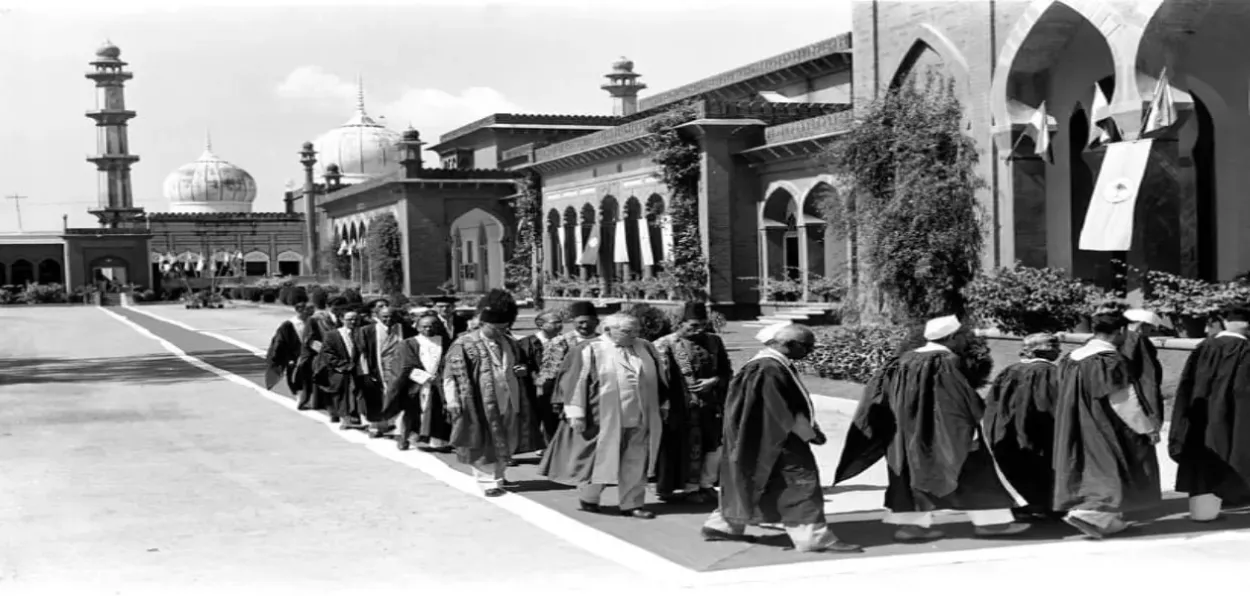
 Saquib Salim
Saquib Salim
“The first and, in the cause of education, the most powerful argument in favour of a Mohammedan or Hindu University is, that it would make possible the creation of genuine University towns, with traditions of their own.” Agha Khan told this to his audience in 1902 while raising funds for the upgradation of M. A. O. College to the Aligarh Muslim University (AMU).
We hardly appreciate the ‘traditions’ (tehzeeb in Urdu) of a university. Teachers and students hold most of these ‘traditions’ which are as important as the annual examinations.
The essence of this term, ‘traditions’, is much different in AMU than its literal meaning. For Aligarians; these form the ethos of the university.
When I entered the university in 2003 as a student in Senior Secondary School, I had heard about ‘the traditions’ from family members who had studied there and also realized this importance only after leaving the place.
What they call ‘traditions’ in AMU are etiquettes needed to make a man or a woman polished. Before 2007, these traditions were taught to the newcomers by the seniors in mix-ups called ‘intro’. Later the practice of ‘intro” came under the ambit of anti-ragging laws and stopped. I wonder if ‘intro’ could be classified as ‘ragging’.
I can surely say that I follow most of the traditions that I learned almost two decades ago at the AMU even after studying at Delhi Jawaharlal Nehru University (JNU). Most of the time people admire me for my etiquette.
The first ‘tradition which I learned was to greet anyone, especially older people. Aligarians believe that respect begets respect. So you have to greet anyone, especially seniors, like a duty. The habit stuck with me.
Another one that I was tutored during the ‘intro’ was to respect girls. One of the seniors asked me what would I do if I ever saw a girl being harassed in public. “You should even beat him before reporting to the university authorities. It may be illegal but for our society this action is important.
We were also taught to wear formal outside our rooms in the hostels. There was no way one would walk into the dining hall, common room or canteen wearing Kurta Pyjamas, Lowers, T-shirts, or slippers. One has to put on Shervani, Pants, Shirts, Shoes, etc. at these places as well as while stepping out of the hostel.
This tradition also turned into a habit. I believe that dressing up is very important for a personality.
The ‘traditions’ contain elements like what one will reply if offered food or water, how to drive a bicycle, use rickshaw, sip tea, start a conversation, take one’s leave, behave with less educated or working class, behave with the opposite gender or act in public meetings.
In a nutshell, the ‘traditions’ form the cultural upbringing at the university. These are as important as the textbook knowledge. They teach us how to be a good social human and excel in life.
It should not be missed that our teachers at engineering college used to say that while at other colleges you learn only technical education at Aligarh one learns culture and social life along with engineering. Aligarh’s Tehzeeb(traditions) is central to its existence. This is what sets the university apart from any other institution in India.
The Principal of M. A. O. College, Theodore Morrison, said in 1893-94, “I hope that neither the Trustees nor the public will ever accept the results of the examinations (whether good or bad) as a criterion of our educational system here: that would be strangely to forget the aims of our foundation. The moral and intellectual tone of the Boarding House is a matter of much greater concern than many examinations, but of which the results are not easily analyzed and tabulated. Owing to the growing popularity of the College a large number of students have joined the College classes in the last two years, who were not educated at our school. As these students know nothing of the traditions of the M. A. O. College, and as they form the majority of the Intermediate classes, it is clear that some change in these traditions is to be apprehended.
"Since the character of our students is chiefly molded by the traditions of the Boarding House, the Trustees cannot contemplate any serious change in these traditions without apprehension, and as year by year the personal influence of the individual members of the staff must become weaker, owing to the growth in numbers which makes it impossible to know any large proportion of the students individually, it is the duty of the Trustees to take thought how these traditions may be carried on and the intellectual and moral tone elevated "
ALSO READ: Was Sir Syed the father of the two-nation theory?
The early founders of the university also envisaged the importance of ‘traditions’ in the pedagogy adopted at the institution. They never wanted AMU to be just another institution where students learn from textbooks. The idea was to inculcate morals, ideas, and social behaviour of the highest quality which would become a distinct identity of the institution. All over the world, Aligarians can still be recognized because of this fraternity bounded by the ‘traditions’ that they follow.
